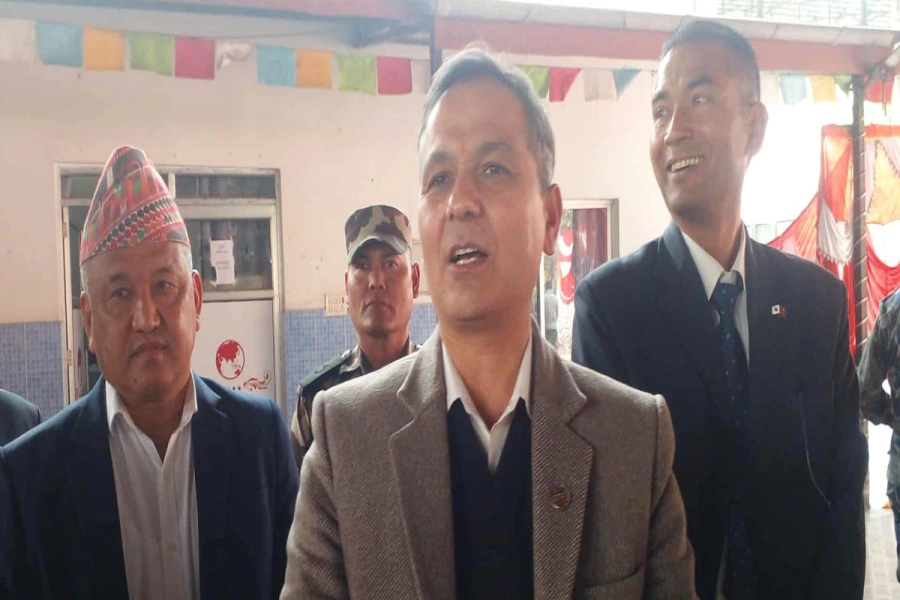KATHMANDU, Jan 9: A person living in Province 3 earns more than roughly twice as much as someone in Province 6 or 7, according to an analysis of government data on per capita income done by Republica.
The analysis is based on province-wise data compiled from various sources by Bikas Udhyami, a not-for-profit organisation that has launched an initiative titled 'Nepal in Data' to make Nepal's development data easily available through its www.nepalindata.com portal.
There is a yawning gap amongst the provinces in respect of per capita income and availability of goods and services. The GDP of each province and their contribution in 15 sectors (see infograph) are derived from statistics in the Human Development Report 2014 (which in turn is based on 2011 data) and other government reports.
Madhesh Province has the lowest GDP per capita of USD 932, almo...

The data shows that a person in Province 3 has an average annual income of US $ 1,094 and dominates all the other regions in almost every development indicator. This is the most recent GDP data available and it has been computed by district.
The data can be an eye-opener for policymakers and planners, who will be struggling to narrow down the income gaps as per the federal setup under the Constitution of Nepal 2015. According to the data, the average annual per capita incomes in provinces 5 and 6 are only US $ 611 and 475 respectively. Province 7 has the lowest per capita income, at US $ 474.
Province 4, the center of much tourism activity, is a distant second with an income of US $ 766 per year . Likewise, provinces 1 and 2 are in third and fifth position respectively, with annual incomes of US $ 733 and US $ 570 respectively. Province 5 ranks fourth.
PROVINCE 3 LEADS IN 13 OUT OF 15 SECTORS UNDER GDP
Province 3 leads in 13 sectors under GDP, while provinces 1 and 2 lead in agriculture and forestry and in fishing and manufacturing respectively.
Province 6 contributes the least in all 15 sectors. However, provinces 6 and 7 have an equal contribution in three sectors: manufacturing; transport, storage and communications; other community, social and personal service activities. Province 7 is the second lowest contributor in 13 sectors.
PROVINCE 3 GENERATES A THIRD OF TOTAL GDP
Province 3 contributes a third (32 percent) of total GDP. It takes the combined value of the goods and services produced in provinces 1 and 2, which contribute 17 and 16 percent respectively, to nearly equal that of Province 3.
Province 2 produces fish worth Rs 2.7 billion, which is more than four times the production of Province 1. Province 3 produces goods and services relating to mines and quarries worth Rs 2.8 billion whereas Province 1 ranks second with Rs 969 million. Province 3 contributes other community, social and personal services worth Rs 38.51 billion which is more than 20 times that of the province which ranks second.
The conclusion is that almost all goods and services have been focused in Province 3 where the capital city is located. "Such goods and services should be distributed to all the provinces based on the potential of each province to harmonize GDP contribution and overall development in the new federal setup," said Suman Aryal, director general of the Central Bureau of Statistics.




































